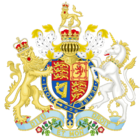Union Chargeability Act 1865 facts for kids
| Act of Parliament | |

|
|
| Long title | An Act to provide for the better Distribution of the Charge for the Relief of the Poor in Unions. |
|---|---|
| Citation | 28 & 29 Vict. c. 79 |
The Union Chargeability Act 1865 was a special law passed by the Parliament of the United Kingdom in 1865. It was created after an earlier law called the Poor Law Amendment Act 1834. The main goal of this new Act was to make sure that the money used to help people in need was shared more fairly.
Contents
Why Was This Law Needed?
After the Poor Law was passed in 1834, there were some problems. This law was meant to group local areas, called parishes, into bigger groups called "unions." The idea was that these unions would share the costs of building places like workhouses, which were buildings where poor people could live and work.
How Did Parishes Avoid Paying?
Even though the goal was to share costs, some parishes found ways to avoid paying their fair share. These were called "close" parishes. They would make sure very few poor workers lived there. This meant that the financial burden of helping the poor mostly fell on other areas, known as "open" parishes. These "open" parishes had many poor people and had to pay a lot more.
Sharing the Costs More Fairly
Because of this unfair system, the Union Chargeability Act 1865 was created. Its purpose was to make sure that all areas within a union shared the costs of helping people in need more equally. This meant that "close" parishes could no longer avoid their responsibilities.
What Was the Debate About?
Passing this law was not easy. There was a lot of disagreement, especially about two main issues: "settlement" and "removal."
What is Settlement and Removal?
- Settlement was a rule that said where a person officially belonged. It decided which parish was responsible for helping them if they became poor.
- Removal meant that if a poor person was found in a parish where they didn't have "settlement," they could be sent back to their home parish.
Why Was it Controversial?
Some people suggested changing the rules so that poor people could get help in the place where they had been living, even if it wasn't their official "settlement" parish. But this idea was not accepted. People worried that if this happened, poor people would all move to big cities just to get help. Because of these concerns, the suggested changes were removed. This allowed the bill to finally pass on May 15, 1865.
 | Frances Mary Albrier |
 | Whitney Young |
 | Muhammad Ali |

